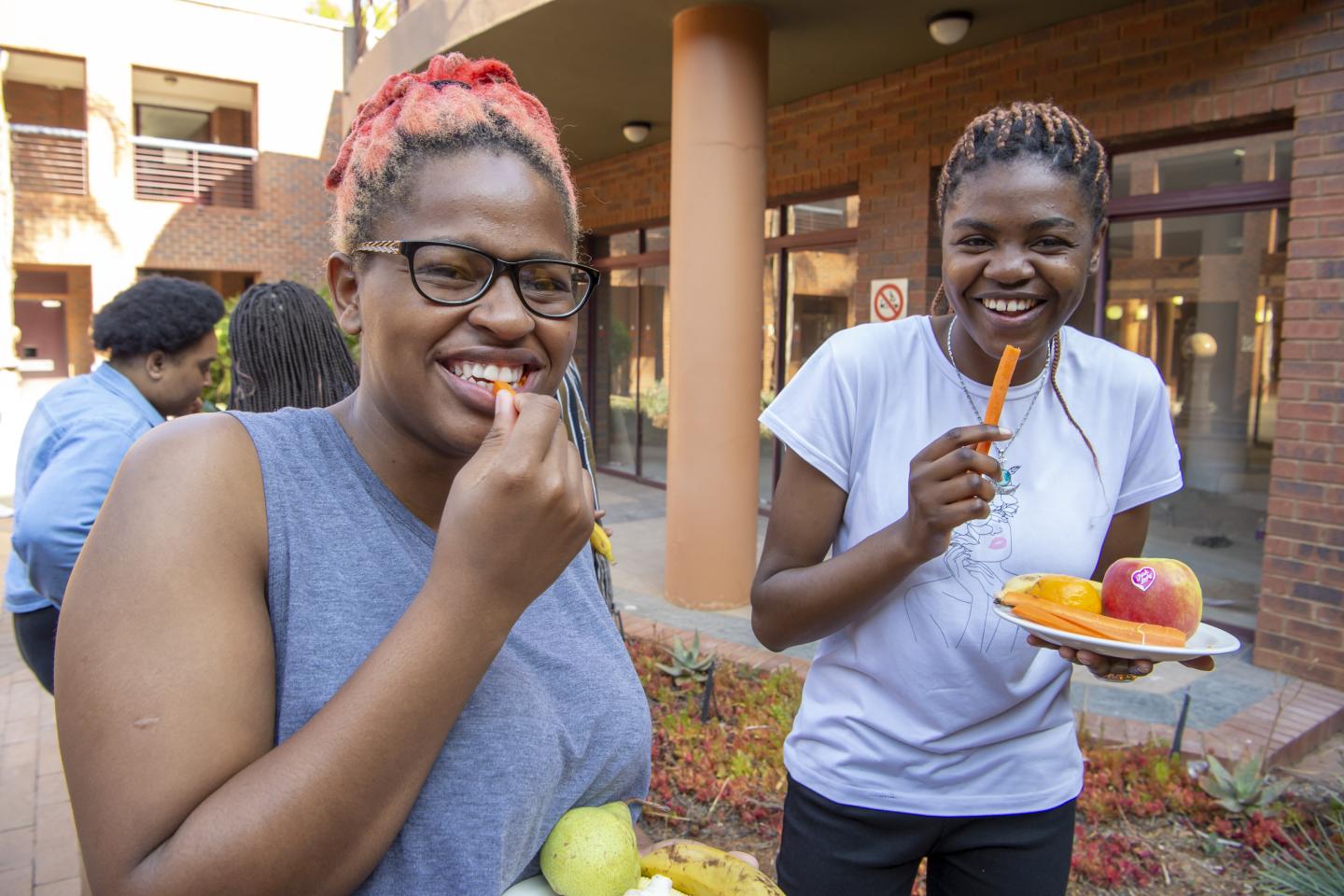
PRETORIA, 20 October 2023 – Young people across South Africa are stepping up to tackle the rising physical, mental, and economic costs of unhealthy lifestyles by launching the ‘My body, my health: my wealth’ campaign today at the University of KwaZulu-Natal (UKZN), Pietermaritzburg campus, to mark the end of National Obesity Week, 16 to 20 October.
The campaign, led by UNICEF South Africa Volunteers, aims to raise awareness about the importance of healthy behaviours from a young age and to advocate for changes to the food environment to make healthy eating choices easier, cheaper, and more accessible. The event was attended by the Deputy Minister of Health, Mr. Sibongiseni Dhlomo, UNICEF South Africa Deputy Representative (a.i.), Sufang Guo and UNICEF South Africa Volunteers from UKZN who are playing a lead role in the campaign.
“Good nutrition and physical activity are essential to give children and young people the best start in life,” said Sufang Guo, UNICEF South Africa Deputy Representative (a.i.), speaking at the launch event. “The local environment too often makes healthy food choices and opportunities to be active out of reach for young people, which affects their immediate and longer-term wellbeing,” added Guo.
Non-communicable diseases (NCDs) like diabetes, heart disease and cancer are the leading cause of death and disease in South Africa and carry huge costs to patients, families, communities, the health system and economy at large. A poor diet with excessive sugar, salt, and saturated fat, as well as physical inactivity can significantly increase the risk of NCDs later in life.
Some 31.3 per cent of females and 9.6 per cent of males in the 15-19-year age group across South Africa are overweight or obese. The ‘My body, my health: my wealth’ campaign puts youth voices at the centre through creative design, engaging content, relatable role models, and thought-provoking activations.
The campaign has a nationwide reach through digital and social media, as well as community engagement, while UNICEF South Africa Volunteers, through their Campus Clubs, will drive advocacy initiatives and raise peer knowledge and awareness on the prevention of NCDs. Their message is that youth must be empowered to take charge of their own health, and all young people in South Africa are invited to join the movement.
The UNICEF South Africa Volunteers are receiving training and mentoring to maximise their work in advocating for changes to the food environment. This includes ensuring that the draft regulations on the ‘Labelling and Advertising of Foodstuffs in South Africa’ are passed and in-turn enable young people and families to make more informed choices about the food they purchase and consume. These efforts align with the National Strategy for the Prevention and Control of Obesity (2022-2027) and the Prevention and Control of NCDs.
The campaign also calls for improved availability of affordable nutritious food and safer environments that enable physical activity, along with information and access to mental wellbeing support structures.
“I’m learning and understanding more about the food environment and how this influences my dietary habits,” said fifteen-year-old Lerato Koloko, a UNICEF South Africa Volunteer leading the campaign. “This knowledge has empowered me to eat healthily, to nourish my body and to respect myself. Food is not a way to feed my emotions,” added Koloko.
The campaign includes engagement and collaboration with government counterparts and civil society partners in the food systems space to ensure maximum traction and impact. UNICEF South Africa Volunteers encourage all young people to join this movement and to learn more through the campaign page.
Notes to Editors
Statistics come from the South Africa Demographic Health Survey (SADHS 2016), as well as the UNICEF South Africa 2022 study on diet and physical activity among adolescents and youth in South Africa.
Childhood obesity among children under five is 13 per cent, more than two times that of the global average, while 60 per cent of 20–24-year-old women are overweight or obese, compared to about 14.5 per cent of men the same age.
The ‘My body, my health: my wealth’ campaign supports the 2022 ‘National Strategic Plan for the Prevention and Control of Noncommunicable Diseases’ and the National Strategy for the Prevention and Control of Obesity (2022-2027) led by the National Department of Health.
